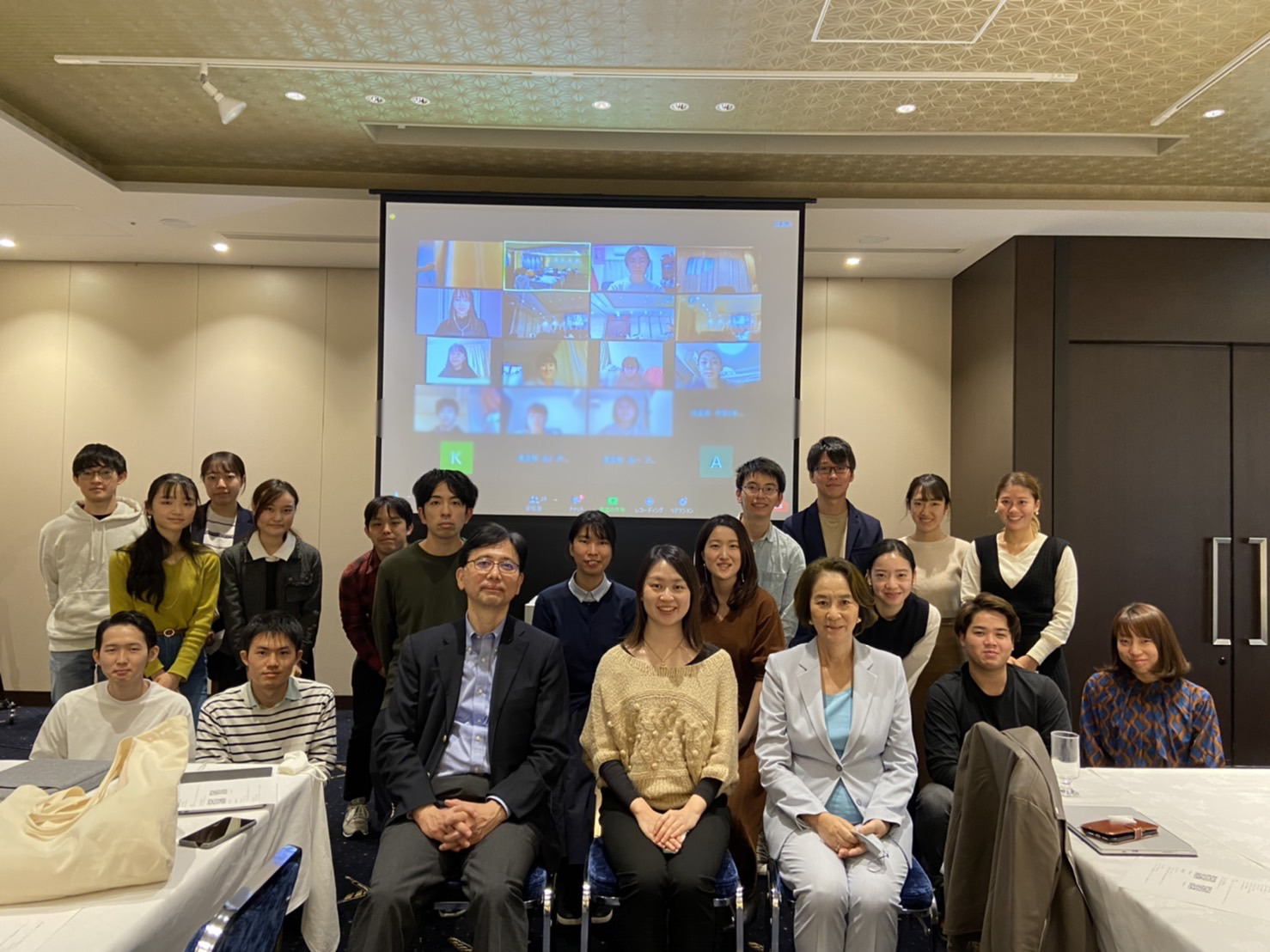- HOME
- Activities
- Forum List
- Forum Details
Ocotober.23.2021 KIP Forum "The Environmental Issue :Plastics flowing out to the sea"

Ms. Mana Kamakura
Profile:
Graduating from the University of Tokyo's Faculty of Liberal Arts in 2019, she joined the Ministry of the Environment. She is currently working in the Office of Marine Plastic Pollution Control, where she is involved in international negotiations on measures to deal with marine plastic litter and clarifying the actual situation of microplastics.
【Speech and Q&A】
This forum was held in a hybrid format with FCCJ, connecting 13 junior and senior high school students from all over Japan via zoom as the first time of Project JACK. This was a memorable event for KIP, which has been placing importance on intergenerational exchange from the people of alumni to university students, in that a forum was further expanded by one younger generation. On the theme of "Current Status and Countermeasures for Marine Plastic Pollution," she shared her awareness of the issue by analyzing data and gave us a systematic explanation of the current and future trends in Japan and abroad, based on the standpoint of the Ministry. Here are some knowledges shared. Firstly, microplastics (fragments of less than 5mm), which pose risks such as damage to tourism and living environment, obstruction of ships, and unresolved bioaccumulation, are mostly emitted from developing countries in Southeast Asia. Also, there are data showing that there is a gap between the amount of microplastics and the amount consumed in each country. Secondary, the types of artifacts that wash up on Japanese shores in number-base and weight-base. Further, we checked current international conventions being promoted by the Ministry of the Environment, and confirmation of domestic policies. Based on these speeches, we had a valuable question and answer session focusing mainly on the views and measures taken by the Ministry of the Environment for each issue. In the case of the marine plastic waste problem, if we consider the effect based on the amount of emission, the most important thing is said to be supporting the infrastructure of developing countries, and in fact it is providing support in both software and hardware. They may be insights on structural issues that seem to be common to all international issues.
【Group discussion and grand discussion】
In the same environmental issue, the discussion turned to the two pillars of environmental pollution and global warming (climate change), and which position Japan should take on the future of meat eating: 1) promoting innovation, 2) promoting regulation, or 3) disseminating information. We discussed, high school students too giving views like the influence of government regulations on the Japanese people's tendency to “follow the law”. The discussion was deepened between position (1) and position (3) with the following comments: “the priority is to develop tasty meat alternatives that taste better” and “there is a limit of behavioral change that can be achieved only by sharing idealistic theories through information dissemination” by position (1), and "the private sector should foster the use of alternative meat to ensure the smooth introduction of policies or technologies" and "it will take time for the issue to penetrate society because it is not only a simple carbon dioxide issue but also a complex issue related to the livestock industry” by position (3). However, there is room for discussion on innovations that do not bother animal meat consuming or that provide protein sources in other wat rather than alternative meat. The instinct to eat animal meat and the history of humanity's eating of animal meat was also mentioned as a point of view.
This was the first time for some students to participate in this event, as well as Junior and Senior high school students. Some common feedback from them were on the depth of knowledge of alumni’s and KIP members’ major, the many new perspectives they could gain by exchanging opinions with the generation that is much older than them, and the difficulty of verbalizing their opinions and questions. We reconfirmed our stance that we value learning from the perspectives of older and younger generations.
【What I thought through the Forum】
I was reminded of the many perspectives (feasibility, effectiveness, and so on) that need to be taken into consideration when implementing environmental measures while protecting the inevitable aspects of the survival of various industries with a large "environmental impact. I especially benefited from the perspectives that I had been missing, such as the clarification of the subject and target of information transmission, and the difference between long-term and immediate policies. In addition, we were able to listen to the voices of junior and senior high school students in the discussion about “the room for educational reform”, and I felt the real pleasure of discovering myself by others, through such intergenerational exchanges and interactions. I’m afraid it contains my personal views on the direction of room for educational reform were mixed in, but I realized the importance of opportunities like this forum to “recognize social issues and exchange our own opinions”.
(Mahiro Ebara, the University of Tokyo, Science class 1, 1st year)


